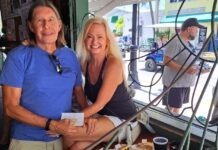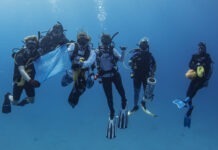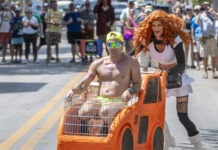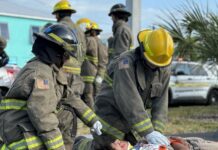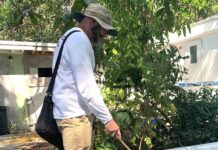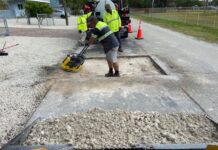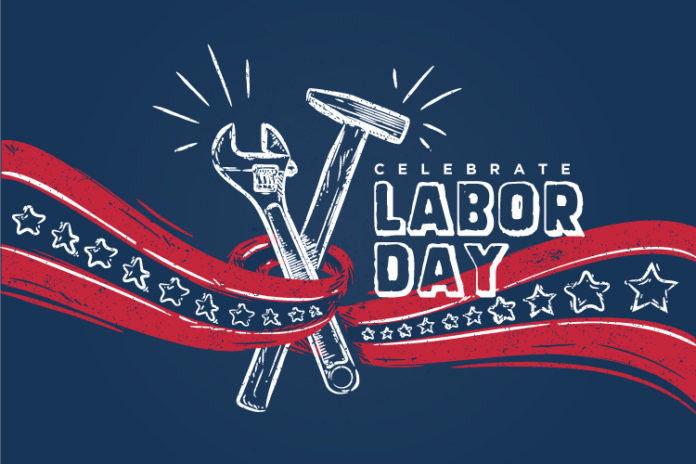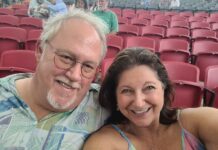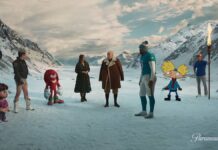Labor Day became a federal holiday in 1894, and it came about in response to one of the most dismal chapters in the saga of the American worker.
From History.com: “In the late 1800s, at the height of the Industrial Revolution in the United States, the average American worked 12-hour days and seven-day weeks in order to eke out a basic living. Despite restrictions in some states, children as young as 5 or 6 toiled in mills, factories, and mines across the country, earning a fraction of their adult counterparts’ wages.” Working conditions were often abysmal as well.
As the United States turned from an agrarian to a manufacturing economy, labor unions began to speak up for workers, protesting poor working conditions and advocating for better hours and fair pay. Their messages on behalf of laborers weren’t graciously accepted by the employers of the day. The tipping point happened in 1894, when employees of the Pullman railroad car company went on strike to protest wage cuts and the firing of American Railroad Union representatives. The union then called for a boycott of all Pullman railroad cars, which crippled rail traffic nationwide.
To stop the strike, the federal government sent troops to Chicago. This resulted in rioting that ended up with a dozen workers killed. Out of the unrest, Congress voted to declare Labor Day a national holiday, and President Grover Cleveland signed it into law.
Down here in the Keys, our local labor force deserves recognition as well. There are more than a few local workers who know all too well the concept of 12-hour days and seven-day weeks just to be able to afford life in the islands. But Keys people have a tradition of hard work ever since the first people set foot on these rocks.
The Calusa and Tequesta tribes knew how hard it was to live here. Food and fresh water were in short supply, but they thrived under the hot Florida sun. The local tribes actually started the wrecking and salvage industry down here, and prospered until the arrival of the Bahamians and Americans. In those old days, there were efforts at farming (mostly pineapples and citrus), as well as fishing, sponging, and turtling. All these occupations were hard work outdoors, in the days long before mosquito control!
The world got a good bit smaller after Flagler’s railroad was completed. It took years of backbreaking labor to build the bridges and finish the railroad — and workers earned the sum of $1.25 a day, along with food, lodging, and medical care. Fresh water was a constant problem, with an average of 4.5 gallons needed each month. That problem was solved when the pipeline from the mainland was completed — more years of sweltering labor.
After the Labor Day Hurricane of 1935, the railways were converted into roads as the Overseas Highway became a reality. In the post-World War II years, a fledgling tourism industry was born, and the die was cast for our future.
Our commercial fishermen still pull in the traps like they did in days of old, and our charter captains and crew work hard to ensure that everyone has a great time and catches some fish. While commercial fishing remains an important part of our Keys economy, tourism and related businesses generate the biggest piece of our local revenue pie.
When one thinks of it, nearly every business in the Keys is tourism-related. Outside of commercial fishing, most of our local businesses depend (in one way or another) upon our visitors. From restaurants to hairdressers to exterminators to publishers, all of our Keys employees and business owners rely on dollars generated by tourism. And those who work in these businesses really work — from the bartender to the marine mechanic to the landscaper — we are as good as we are thanks to the labors of all who live here.
I’d like to recognize a special class of worker whose labors are essential to all of us, especially in this last year. Our first responders and frontline healthcare workers have really made a difference in all our lives. With resources stretched and hospitals back at capacity amidst this latest COVID surge, these heroes deserve our thanks and admiration.
It’s good to celebrate our labors this and every year. The work we do builds better communities and better lives. Happy Labor Day!
Catch John Thursdays at Sparky’s Landing, Friday on Facebook Live, and Saturday night at the Key Colony Inn. Music wherever you get your streaming or downloads. www.facebook.com/john.bartus
